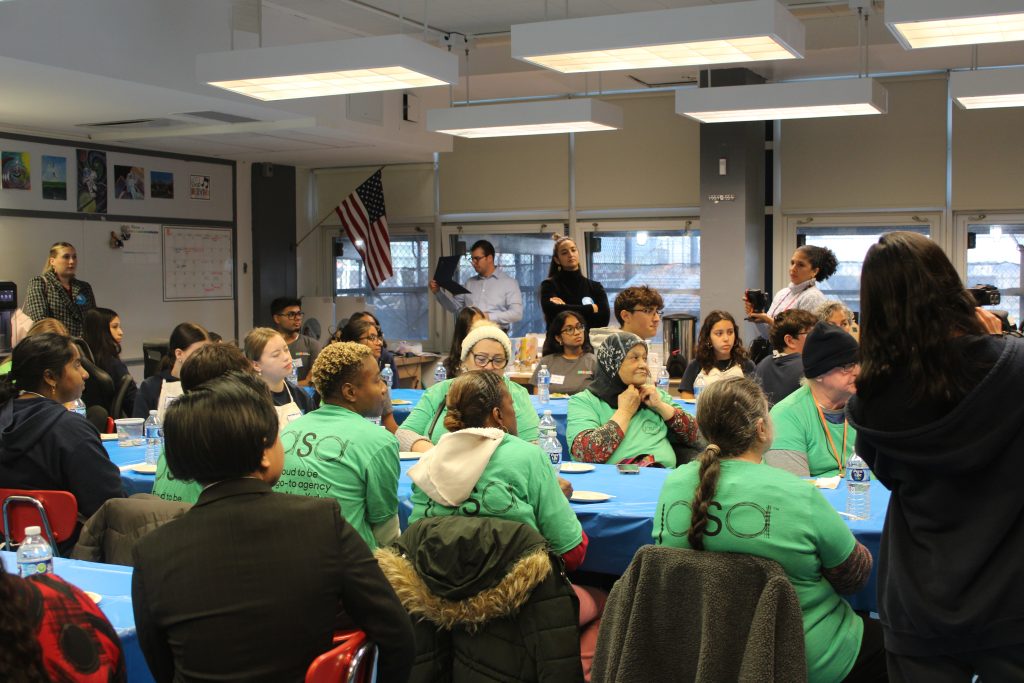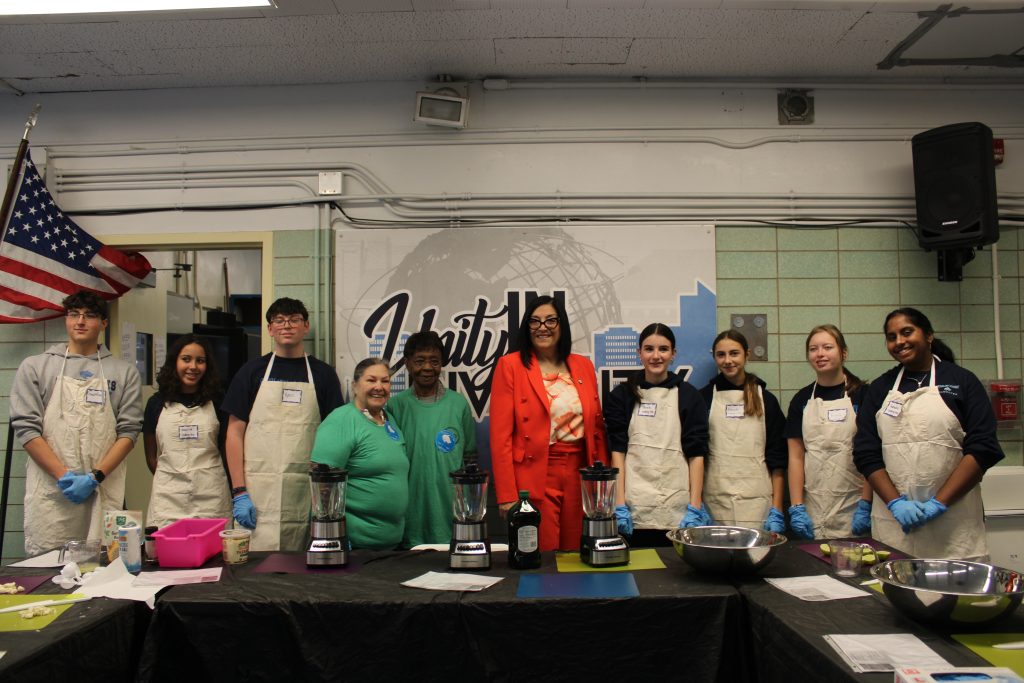
Courtesy JASA
The JASA Far Rockaway Older Adult Center partnered with students from The Scholars’ Academy and Teens for Food Justice to harvest hydroponic produce and educate seniors on healthy eating.
By MOHAMED FARGHALY
mfarghaly@queensledger.com
The JASA Far Rockaway Older Adult Center recently joined forces with high school students from The Scholars’ Academy and Teens for Food Justice, a nonprofit organization dedicated to combating food insecurity, to harvest fresh produce and engage in an educational event focused on healthy eating habits.
The event, which culminated in a shared meal between students and older adults, showcased the benefits of hydroponic farming and emphasized the importance of intergenerational collaboration. This partnership has already seen remarkable results, including over 3,000 pounds of produce harvested by students at The Scholars’ Academy and delivered to JASA’s Van Cortlandt Older Adult Center.
“The program we’re highlighting this week is an initiative that started last year between JASA and Scholars and the Teens for Food Justice program that runs the hydroponic garden in the Scholars Academy school,” Tania Collazo, Director of Nutritional Services at JASA said. “They also run other gardens in other schools around New York City. This started with them providing some produce to the older adults in the community, and it has now snowballed into providing over 3,000 pounds of produce, education, and tours of the garden.”
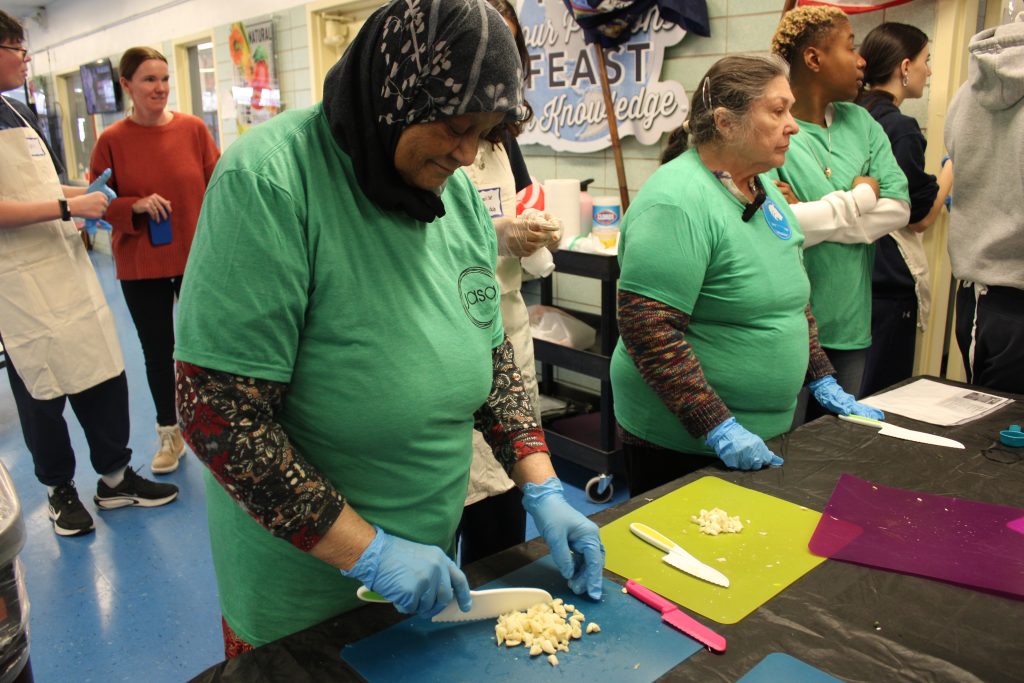
Courtesy JASA
The initiative, which has provided over 3,000 pounds of fresh produce, fosters intergenerational collaboration and empowers both students and older adults to address food insecurity in their communities.
Teens for Food Justice operates hydroponic gardens in schools throughout New York City, including The Scholars’ Academy, where students are responsible for growing nutrient-dense produce. These students not only learn how to grow food but also gain an understanding of the critical role nutrition plays in health. Through the partnership, older adults have had the opportunity to tour the gardens and learn more about how they can grow their own food at home.
“It has become a real community effort to help our older adults in the community, and it has really become a wonderful intergenerational project between the kids and the older adults, where the students are learning about giving back, they’re learning about service to others,” Collazo said. “They’re seeing a real value in this.”
The event was also a chance to showcase the power of youth-led initiatives in addressing food insecurity. Students from The Scholars’ Academy worked alongside older adults, teaching them how to harvest and prepare fresh produce.
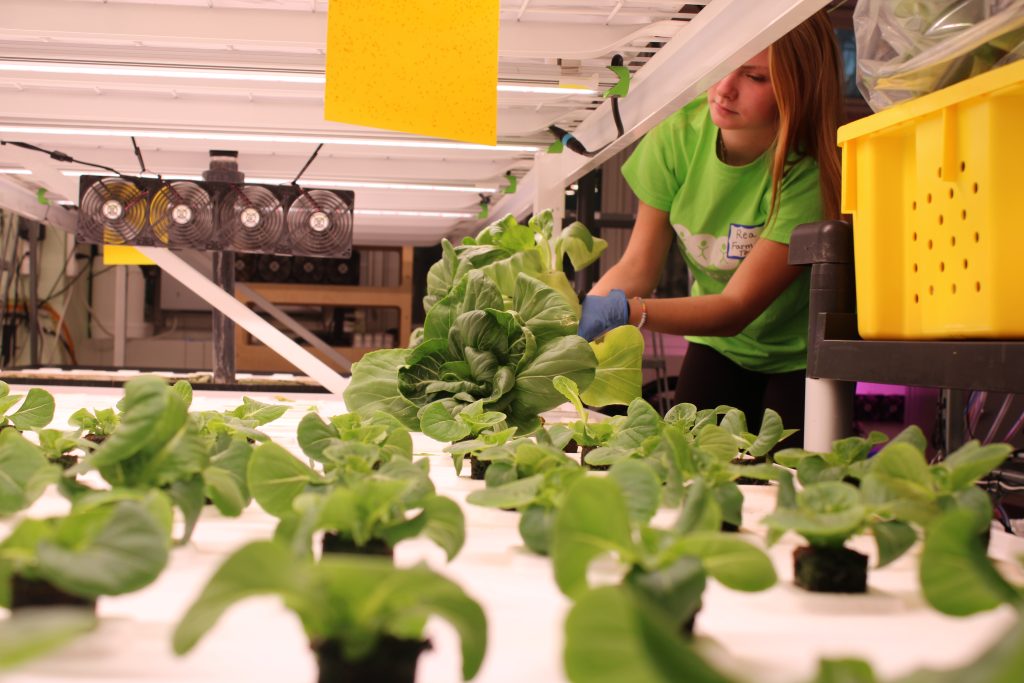
“It’s beyond just nourishment of food, but it’s nourishment of you, of your character, of your soul,” Collazo said. ‘You know, it is a way for you to just feel good about yourself, to give back in this way, and to see that the work that you’re doing, quite literally, the harvesting and the cultivating of these plants, is actually feeding other people who are vulnerable, who are food insecure, living in food deserts.”
Hydroponic farming, a method of growing plants without soil, is particularly well-suited to urban environments like New York City, where space for traditional gardening can be limited.
“In a city like New York, where it’s hard to grow fresh produce year-round, hydroponic farming offers a sustainable solution,” Collazo said. “Produce grown hydroponically can be harvested at its peak of freshness, which means it retains more nutrients and is more beneficial for people in food deserts who might not have access to high-quality fresh food.”
Older adults at the event expressed deep appreciation for the program, highlighting the personal connections formed during the day.
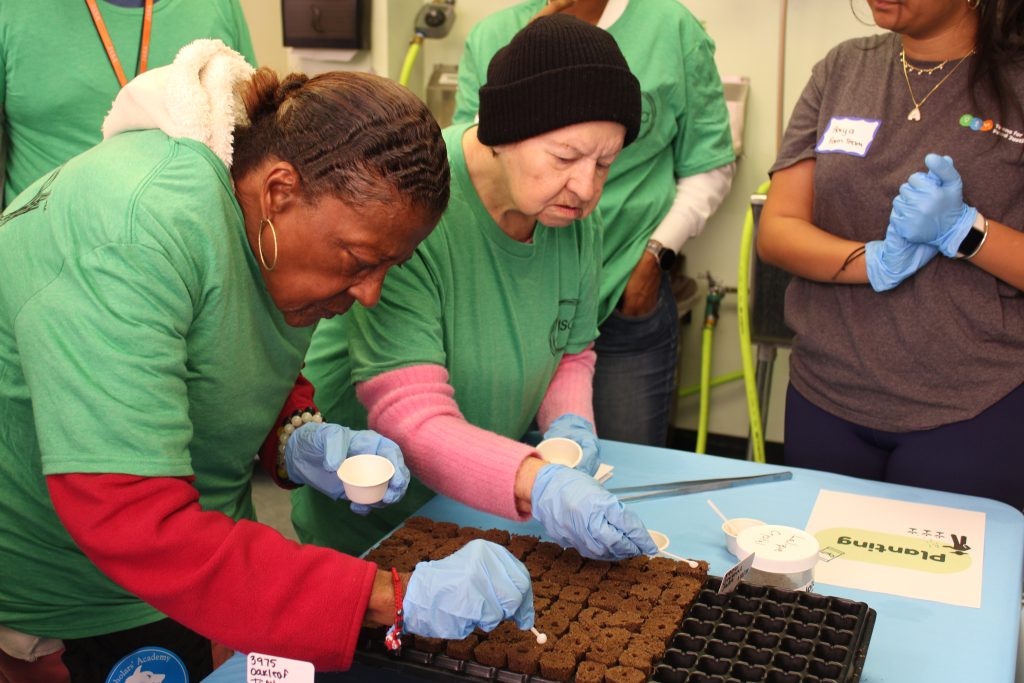
“It’s not just about handing someone a piece of broccoli or some collard greens. It’s about showing them how to grow their own food,” Collazo said. “It’s about giving them control over their health.”
The program has become a model for community-based solutions to food insecurity, and Collazo hopes to see it expand in the future. This initiative is a vital part of JASA’s mission to provide older adults not just with food, but with a sense of community and purpose.
“This is a way in communities, especially in communities where there are food deserts, to have produce all year long,” she said. “And produce given out to people who are basically living in food deserts, or who are living in places where there may be some food, but the food is of NOT of high quality.”
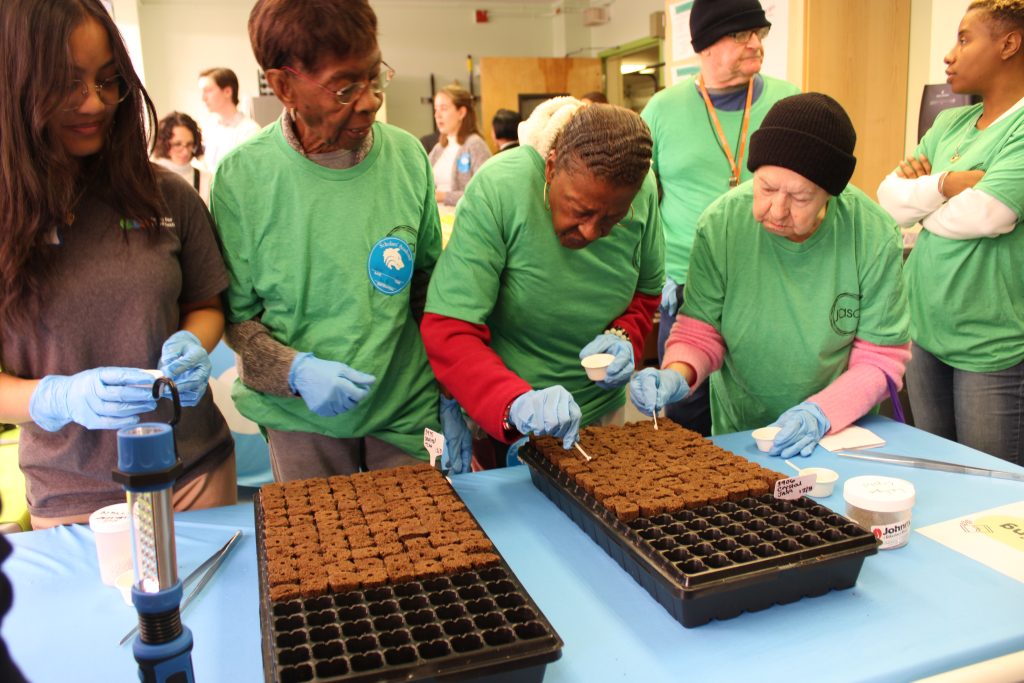
As the program continues to grow, it stands as a testament to the power of collaboration between generations and communities.
“I would love to see it expand,” Collazo said. “I would love to see more schools have this. I would love to see our older adult centers have the ability to have our own hydro products in the centers where older adults could help manage the garden, be in charge of that, cultivate their own garden, and feed more people together.”
